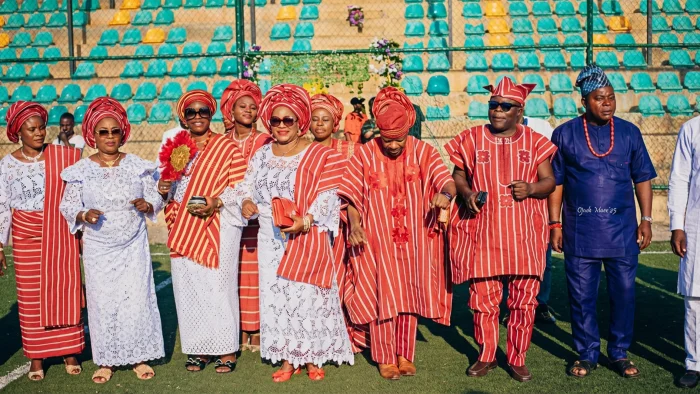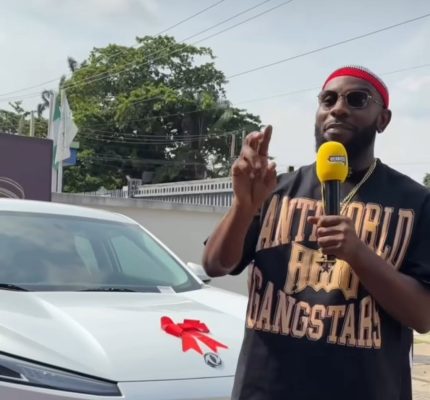Afrobeat musician Omorinmade Kuti, also known as Made Kuti, has said that his grandfather, the late Nigerian musician and activist Fela Anikulapo Kuti, died in financial hardship.
Made made the remarks during an appearance on the podcast, Tea With Tay, which was published on YouTube on August 2 — the anniversary of Fela’s death.
“He (Fela Kuti) was broke. Fela died poor,” the 29-year-old said. “Fela was the kind of person who, when he made a bunch of cash, had the kind of money that could have bought the whole street. But he would return from a show, Kalakuta, open a box of money and say, anybody who needs to take.”
Fela, widely acknowledged as the pioneer of Afrobeat, died on August 2, 1997, at the age of 58. He was buried at his former residence in Ikeja, Lagos, now known as the Kalakuta Museum.
Speaking about his grandfather’s lifestyle, Made said Fela operated an open-house policy where anyone could come and go freely. He also described the family’s communal structure.
“Anybody from the street could walk into Fela’s house. It was an open house policy. Anybody could walk in and walk out at any time. His children were not allowed to call him dad or father or any honorific because he didn’t want any special treatment for them. After all, everybody was equal in Kalakuta,” he said.
Reflecting on his family’s musical history, Made discussed both the benefits and challenges of bearing the Kuti name. He acknowledged that the name has granted him access within the music industry but also noted the weight of expectation it carries.
“I would never say or deny that I, as a Kuti, have opened many doors for myself in the industry,” he said.
He described Afrobeat, and similar genres, as products of hardship and resilience.
“Many musicians who discovered and pioneered original music didn’t come from privileged backgrounds. Punk, blues, jazz, rock music, and even hip-hop came from struggle,” he said. “Fela did that. Every time he was beaten and jailed, he returned with a stronger song. After they beat him, came *Zombie*, *Suffering and Smiling*. That was how he dealt with pain. That was his weapon.”
Made also spoke about the psychological impact of growing up in the Kuti family and the complex dynamics that surrounded his father, Femi Kuti, and aunt.
“I believe truly that my father and my auntie, because they grew up with Fela as adults, need therapy,” he said. “They saw the growth from him being Fela Ransom Kuti to having nothing, to the extreme fame of him being Fela Anikulapo Kuti, to the extreme decline of him financially. And in that process, they were never given any special treatment.”
He recalled that after Fela’s death, his children decided to give him what they described as a “people’s burial.”
“So when he passed, these same children said that Fela’s life was about the people, so he would get a people’s burial,” Made explained. “So when they took him to Tafawa Balewa Square, they told my dad, ‘See, nobody’s coming.’ When millions of people just started swarming in and they took his body from TBS back to Kalakuta, and millions of others, it was broadcast on the BBC. All of that was because the children insisted.”
Fela Kuti’s funeral, held in Lagos, drew large crowds and remains one of the most widely attended in Nigerian music history.








